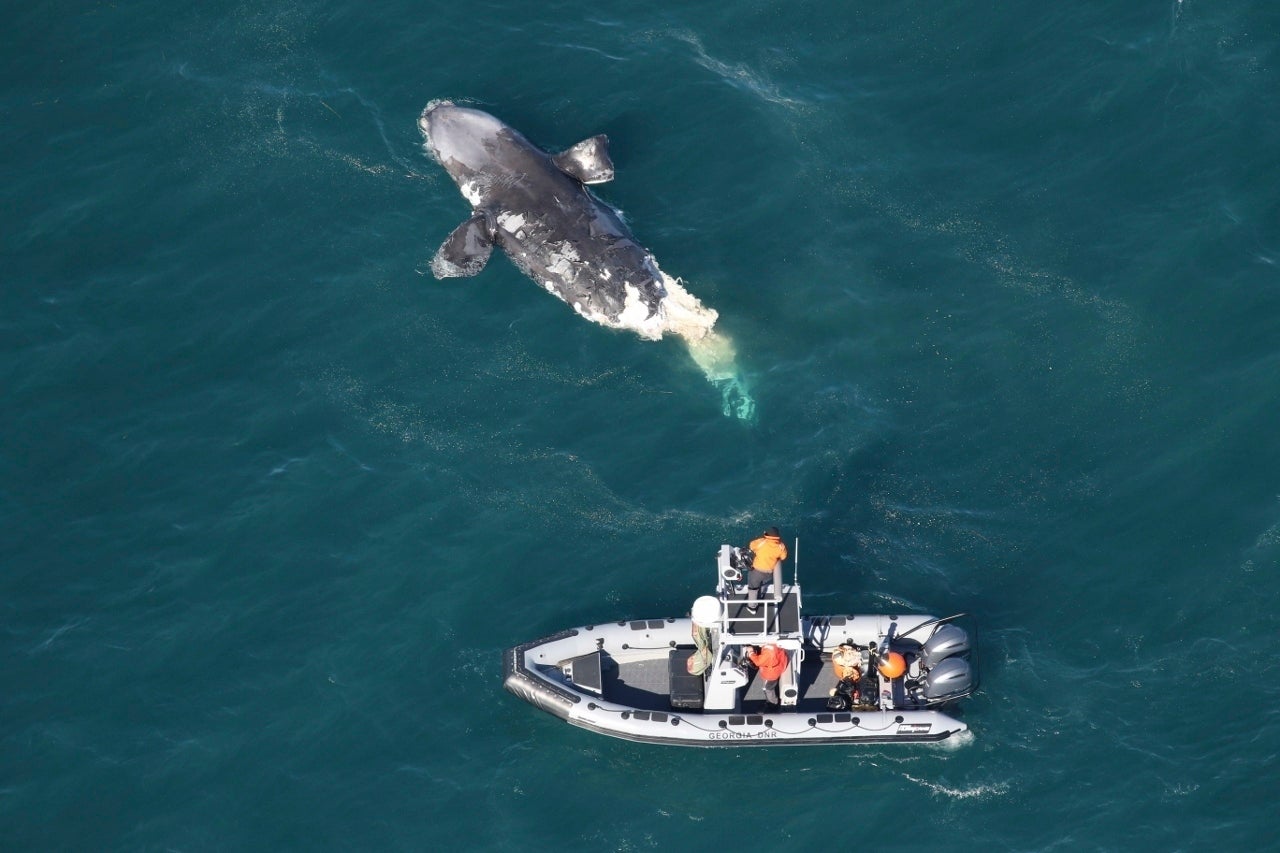Another endangered whale was found dead off East Coast. This one died after colliding with a ship
Federal authorities said the second critically endangered North Atlantic right whale found dead in the last month showed injuries consistent with a collision with a ship

Your support helps us to tell the story
From reproductive rights to climate change to Big Tech, The Independent is on the ground when the story is developing. Whether it's investigating the financials of Elon Musk's pro-Trump PAC or producing our latest documentary, 'The A Word', which shines a light on the American women fighting for reproductive rights, we know how important it is to parse out the facts from the messaging.
At such a critical moment in US history, we need reporters on the ground. Your donation allows us to keep sending journalists to speak to both sides of the story.
The Independent is trusted by Americans across the entire political spectrum. And unlike many other quality news outlets, we choose not to lock Americans out of our reporting and analysis with paywalls. We believe quality journalism should be available to everyone, paid for by those who can afford it.
Your support makes all the difference.Federal authorities said the second critically endangered North Atlantic right whale found dead in the last month showed injuries consistent with a collision with a ship.
The whales number less than 360 and they have experienced decline in recent years. The National Oceanic and Atmospheric Administration said it was notified of a dead right whale floating off Savannah, Georgia, on Feb. 13.
The agency said late Friday that a necropsy of the animal “found evidence of blunt force trauma including fractures of the skull” and that those “injuries are consistent with a vessel strike prior to death.” The announcement came just days after NOAA released more details about a dead right whale off Massachusetts that showed signs of entanglement in fishing gear, which is the other major threat the animals face.
The back-to-back deaths of the rare whales that both showed evidence of the species' two major threats should motivate rule changes, numerous environmental groups said Saturday. The groups have long pushed for stricter rules governing shipping and commercial fishing to help protect the whales.
“The North Atlantic right whale’s nursery is becoming a crime scene," said Greg Reilly, southeast marine campaigner for International Fund for Animal Welfare. "Without enhanced protections, the North Atlantic right whale is doomed to extinction. Lawmakers need to get out of the way and let the administration finalize the amended vessel speed rule.”
NOAA has proposed new vessel speed rules to try to protect whales, but they have yet to go into effect. Environmental groups have sued to try to force a deadline for the new rules. New fishing standards designed to protect the whales from entanglement in rope are also the subject of ongoing lawsuits involving environmentalists, fishing groups and the federal government.
The whale that died off Massachusetts that was found in January showed signs of entanglement in fishing lines that originated in the Maine lobster fishery, NOAA said this week. Entanglement of whales in Maine rope is very rare, said Kevin Kelley, a spokesperson for the Maine Lobstermen's Association.
“Maine lobstermen have made significant changes to how they fish over the last 25 years to avoid entanglement and continue gear testing,” he said.
The right whales were once abundant off the East Coast, but they were decimated during the commercial whaling era and have been slow to recover. The whales migrate from the waters off Florida and Georgia to New England every year and face hazards like collisions and entanglement along the way. Some scientists have said warming ocean waters has caused them to stray from protected zones during the journey.